- Home
- Paul Christopher
The Templar Cross t-2 Page 2
The Templar Cross t-2 Read online
Page 2
"They set out from Jerusalem and rendezvoused in Alexandria, where the outfitters met them with their vehicles, supplies and hired help. Somewhere between El Alamein and Mersa Matruh they were kidnapped by a group called the Brotherhood."
"Who the hell is the Brotherhood?" Holliday asked sourly, an ugly sensation curling in his gut and putting bile in his throat.
"Their full name is the Brotherhood of the Temple of Isis. According to them they're the Muslim version of the Templars and they were around long before them. Supposedly they date back to the cult of Imhotep at Memphis on the Nile around 600 B.C. The Brotherhood worship Imhotep as the god Ptah. Ptah was the god of craftsmen and of reincarnation. He was immortal. In other words a carpenter who comes back to life and lives forever. The Christian parallels are obvious. The Brotherhood feels that the Christians, particularly the Roman Catholics, hijacked Imhotep as Jesus Christ. They also cite themselves as the direct descendants of both the Copts and the Assassins, or Hashasheen, a sect of drugged-out Shia Muslims and the original fedayeen-'freedom fighters' in their terminology."
"Terrorists," said Holliday.
"Lunatics," Rafi said and shrugged.
"Same thing. And these are the people who've got Peggy?"
"Yes."
"How long ago did this happen?" Holliday asked.
"What's today?"
"The twenty-sixth. Monday."
"Thursday, then. Four days ago." Rafi ran his fingers through his wiry hair and yawned.
"What are their demands?" Holliday asked.
"They haven't made any," said Rafi. "At least they hadn't when I left from Ben Gurion yesterday."
"That's not good," said Holliday.
"No," said Rafi. "That's what my friends in the Mossad said." He gave another jaw-cracking yawn.
"When was the last time you slept?" Holliday asked.
"On the plane. What I need is something to eat."
"Let's get you some breakfast, then." Holliday stood up. "You up for a walk?"
"After fourteen hours sitting in the cheap seats of an El-Al 777? Sure, I'm up for a walk. Where to?"
"Grant Hall. The cafeteria's open this early. You need kosher?"
"Right now I'd eat a bacon sandwich with a side order of more bacon," answered the archaeologist.
"Hang on," said Holliday. "I'm going to change and then we can get going. Bathroom's down the hall if you need it."
Rafi headed for the bathroom and Holliday went to his bedroom. Five minutes later he reappeared dressed in a worn, comfortable set of chocolate-cookie camouflage BDUs that dated back to the First Gulf War. Five minutes after that a freshly scrubbed Rafi reappeared and they left the house. The morning air was cool and pleasant as the sun rose over the trees. It was going to be a nice day. As Holliday locked up the cannon thundered on Trophy Point half a mile down Washington Road. He paused and snapped a quick salute as reveille sounded, the rat-a-tat bugle notes echoing across the entire installation.
"Another 'R' Day begins," said Holliday, joining Rafi on the walk. "God help us all."
"What's 'R' Day?" Rafi asked.
"The arrival of the freshman recruits. Twelve hundred kids with their moms and dads and their kid brothers and their sisters, maybe a girlfriend or boyfriend, sometimes even the next-door neighbors. The whole place turns into a circus."
"At six thirty in the morning?"
"The Army likes to get an early start on its insanity," Holliday said with a grin. "If we're lucky we'll escape most of it."
They walked down Professor's Row. A lot of the houses had that locked-down deserted look. Most of the officers and civilians who taught academic courses at West Point had already left on vacation or were on summer courses of their own somewhere else.
The two men reached the junction of Professor's Row and Jefferson Road, then turned west, passing Quarters 100 and the Thayer Monument. In front of them the gray bulk of Washington Hall loomed with the Washington on horseback statue in front of the giant twin-armed building and the Cadet Chapel rising on the hill behind. Doorways were leaking new recruits now, most of them wearing the black and white gym strip that would be their slightly demeaning costume until they were given their uniforms later in the process. Here and there Holliday could see uniformed, red-sashed second-year cadets herding the bewildered-looking new recruits into some kind of order.
"They look like they're in hell." Rafi grinned, watching the frightened young men and women as they tried to keep their expressions blank.
"That's the idea," said Holliday. "Alienation and separation from the past. Shock treatment; like cutting the umbilical."
"Better them than me," said the Israeli.
"You got that right," agreed Holliday.
They stepped onto the broad concrete mall in front of Washington Hall, threading their way through pods of new recruits that darted nervously like small schools of fish, moving this way and that. On the wide expanse of the Plain to the left parents and friends were beginning to congregate like witnesses to an execution.
As they passed in front of the Washington statue, a cadet got up from where he had been sitting and stepped forward. He was in full uniform, complete with the six gold chevrons of a Cadet Regimental Commander and an ugly pair of BCGs-Birth Control Glasses, named that because you weren't going to get any while wearing them. He looked older than the average firstie and he had a dark stain of five o'clock shadow on his cheeks and jaw. There was a West Point ring on the second finger of his left hand. The right hand was digging into the pocket of his uniform trousers. The young man was smiling sheepishly.
" 'Scuse me, sir, but I seem to have lost my…"
Holliday reacted almost without thinking. He shoved Rafi hard, sending him sprawling. At the same time Holliday lashed out, punching the cadet in the face as hard as he could, feeling cartilage crack under the impact. He grabbed for the young man's right wrist as it came out of the trouser pocket, then put his heel behind the cadet's forward-stepping left ankle, simultaneously twisting the right hand back on itself, the wrist snapping like a twig.
The cadet screamed and fell with Holliday still gripping the wrist. Rafi struggled to his feet as a small crowd began to gather on the pavement around them. Out of the corner of his eye Holliday saw several red-sashed cadets running toward them. The man on the ground struggled briefly, then fell still. He stared darkly up at Holliday, his jaw working as though he was grinding his teeth.
"Who the hell are you?" Holliday barked. "I know you're not a cadet."
The man on the ground began to shudder, his heels rattling on the pavement. His eyes rolled back in his head until only the whites showed and a foamy froth slipped out from between his lips.
"Dear God," whispered Rafi, staring down at him. "He's dying."
Holliday nodded to a black carbon-steel object on the ground beside the man in the cadet uniform.
"And that's a military-grade switchblade," said Holliday. "He was trying to kill me. He's an assassin."
3
They stood around the table in one of the emergency cubicles at the Keller Army Community Hospital and looked down at the naked body on the gurney. Less than an hour had passed since the events in front of Washington Hall, but the corpse already had a gray, washed-out appearance. It looked like a frighteningly realistic store mannequin. There was a complex tattoo on the left side of the dead man's chest above the heart: crossed keys behind a shield showing a lion and an anchor with a miter over the shield. Holliday used his cell phone to take a picture of it. It was clearly the coat of arms of a Pope, but he had no idea which one.
"I'm no pathologist," said the doctor, a captain named Ridley. He was young, under forty, with dark hair only just thinning back from his forehead, the temples barely fuzzed with gray. "But from the foam at the corners of his mouth and the stiffness of the limbs I'd say it was some sort of neurotoxin. Quicker than hell."
"He didn't have time to take anything," said Holliday.
"That's right," said Rafi.
<
br /> "I found bits of plastic on his tongue and in the throat," said Ridley. "Some kind of capsule. It must have already been in his mouth."
"A suicide pill?" Rafi asked, astonished.
"It looks that way," the doctor said.
A representative of the West Point Garrison Provost Marshal's Office was also on hand, a husky thirty-something woman in BDUs, combat boots and a ponytail. She wore a sidearm on her hip, and her face was white as a sheet. She was a sergeant. Her name was Connie Sayers.
"I'm just a Military Police Investigator," she said. "This is way above my pay grade." She shook her head, never taking her eyes off the dead man. She looked as though her throat was full of barely contained bile. When she spoke her teeth were clenched.
"Have you called in CID?" Holliday asked, referring to the Army Criminal Investigations Department.
"Yes, sir. They're sending us up a pair of detectives from Fort Gillem."
Fort Gillem was in Georgia, which meant six to eight hours of waiting, maybe even longer. Holliday knew that the more time he spent at the Point the deeper he was going to sink into bureaucratic glue. The entire Academy was in an uproar over the situation and it was just going to get worse.
"Do we have any ID on him?" Holliday asked, knowing what the answer would be.
"No, sir," said Sayers, shaking her head. "Nothing but the tattoo."
"Whoever he was he was nuts," said the doctor. "A crazy."
Holliday picked up the knife from the stainless steel tray on the examining table. It was a carbon-steel Microtech Troodon with a five-inch out-the-front blade. A stiletto. A split second later and it would have been Holliday on the table with the blade buried in his heart. Not the kind of weapon a crazy person carried.
"Presumably we can agree that I didn't kill the guy," said Holliday.
"I can vouch for that," said the doctor. "There's no doubt that it was suicide."
"Good," said Holliday. "Because Rafi and I have business to attend to in New York."
"The investigating officers from Fort Gillem will want to talk to you," said Sergeant Sayers. "They'll have questions. Homeland Security, too, I'll bet. Maybe you should stay on base… uh, sir."
Holliday gave her the hard eyeball of a much senior officer.
"Is that an order, Sergeant?"
The young military cop got the message loud and clear. That kind of rank-pulling intimidation went against the grain for Holliday, but right now it was necessary.
"No, sir."
"Good. I'll leave my cell phone number with your boss." Holliday took a last look at the body, then turned on his heel and walked out of the cubicle, Rafi hard on his heels.
Holliday whistled up a motor pool car and they drove to the Burger King out by Mitchie Stadium on Stony Lonesome Road. True to his word Rafi packed away two enormous Double Croissan'Wiches loaded with eggs, ham and bacon, washed down with several cups of black coffee. Holliday managed to work his way through a single English muffin with egg and sausage. He could still feel the last shakes of the adrenaline rush through his blood from his incident with the killer.
"You reacted so quickly. How did you know?" Rafi asked. A sobbing mother came in with her husband and a young girl, probably the sister of a new recruit they'd just said good-bye to for the next few months. Apparently Mom was going to drown her sorrows in hash browns.
"He was all wrong," said Holliday. "The uniform was right but any real senior cadet would have shaved better on 'R' Day and the ring was on the wrong hand-always on the right, never the left. The glasses were wrong, too. You're only required to wear Army Issue BCGs during the first few weeks of Basic-Beast Barracks. After that you're allowed to wear your own." Holliday took a swallow of coffee and felt it sour in his stomach on top of the sausage and egg. "Our friend Sergeant Sayers snoops long enough, she's going to find a firstie in barracks who's missing a uniform."
"What the hell is going on, Doc?" Rafi asked. "First Peggy and now this."
"They have to be connected. It would be too much of a coincidence otherwise. The tattoo is the clincher." Holliday frowned. "Reminds me of Lutz Kellerman and his neo-Nazi friends."
"You think the Templars are part of it?"
"Beads on a string," said Holliday. "According to you, Peggy was part of an expedition based on Templar texts. It would make sense." He shook his head. "It doesn't really matter. What matters is finding Peggy and getting her back."
"Where do we start?"
"By heading for New York."
"I was wondering about that," said Rafi. "What's the business we have there?"
"Catching a ride to JFK," said Holliday, standing up and putting their garbage on a tray. "We're going to France."
They returned to Holliday's quarters, and Rafi waited while Holliday quickly packed a bag and retrieved the precious notebook the monk Rodrigues had given to him. Then they called a cab and headed into Highland Falls. Rafi rented a car there in his name and Holliday drove to New York City. They left the car at the Avis Park and Loc behind Penn Station on Thirty-first Street, then took a shuttle to JFK. By four in the afternoon they were boarding an Air France Airbus 330 direct flight to Paris. They went through security and passport control without incident, which meant that so far no one back at West Point had noticed their departure.
They sat in the rear AB seats on the port side of business class just in front of the galley. There were only two other passengers in their section-an overweight man in an expensive suit who broke wind in his sleep and an icy cold woman in a Chanel outfit and four-inch Prada heels who drank white wine steadily from the moment it was offered. Beside him Rafi dozed, fighting off jet lag that was in the process of reversing itself. For the first two hours of the flight Holliday stared out the window, watching as the Atlantic Ocean unrolled beneath the big wide-body's wings.
"I'm an idiot," he muttered finally.
"What?" Rafi said blearily.
"I'm an idiot," repeated Holliday.
"Why would that be?" Rafi asked, stretching and yawning.
"Motive," answered Holliday. "I should have been thinking about motive."
"What are you talking about?"
"Why was this Brother Brasseur of yours doing research into Templar texts in the Vatican?"
"I have no idea. Probably doing research into the Templar invasion of Egypt. He's an archaeologist."
"A year ago an assassin from the Vatican attacked Peggy and me in Jerusalem. Now a tattooed freak tries to kill me at West Point."
"Your point?"
"Why? What's the motive? I'm a history teacher. Peggy's a photographer. Why us?"
"Your connection to the Templar sword. The treasure trove of scrolls you found in the Azores."
"This isn't some whacko story about religious conspiracies and whether or not Jesus had a sex life. People don't kill each other over bits and pieces of history, no matter how historically valuable."
Rafi shrugged. "Okay. Why?"
"Money," said Holliday firmly. "This whole thing has been about money right from the start."
"Explain that."
"We followed the trail of the sword from my uncle Henry's house all the way to that cave on Corvo in the Azores. Rodrigues showed Peggy and me a hundred thousand gold-cased scrolls from the Library at Alexandria and half a dozen ancient storehouses. A wealth of history, enough to keep scholars happy for a hundred years. Longer. A treasure."
"The treasure of the Templars," agreed Rafi.
"For years now I've taught my students that the Templars, at least initially, were really no more than an organized troop of highwaymen, preying on pilgrims more than protecting them. Carrying the banner of the Templars was an excuse to kill and plunder in the name of Christ. They were thugs; gangsters in shining armor."
"And you were wrong."
"No. I was right. Dead right, and I should have remembered that. The scrolls in that cave on Corvo weren't the treasure at all." Holliday reached into the inside pocket of his sports jacket. He took out the thick n
otebook given to him by Helder Rodrigues as the old man lay dying in his arms. It was a tan, suede-covered, 240-page moleskin notebook with a tattered strap. It looked very old. There were water stains on the cover and spatters of dried blood: the blood of the dying ex-priest. "This was the real treasure," said Holliday, handing Rafi the notebook. "A thousand names and addresses that Rodrigues copied down sometime back before World War Two and kept updated until he died. Companies, families and individuals all with allegiance to the original Templar fortune dating back to the thirteenth century. Templar Incorporated. This is what the killer in Jerusalem was after. This was what Kellerman and his Nazis were after, and the assassin at West Point as well."
"AstroEur," said Rafi, reading the first name on the list.
"Hotels all over the world, four thousand of them. Catering for every major passenger rail company in Europe. Three billion euros a year."
"Atreal et Cie?"
"Real estate all over Europe and Southeast Asia. Even bigger."
"Breugier Telecom. Cell phones?"
"And cable TV," added Holliday.
"Credit Alliance SA?"
"The second-largest retail bank in France."
"And these are all Templar operations?"
"One way or another. I've barely touched the surface but it's pretty clear how it works. A dozen small companies, companies that no one would ever notice, invest in a larger company, eventually securing a majority control. I took a company called Aretco, a huge multinational, and traced it all the way back to a company called Veritas Rochelle, a shipping insurance underwriter going back to the early nineteenth century. Veritas Rochelle was owned by a single Cistercian monastery in the Dordogne region. According to the head of the monastery, ownership of the company had been willed to the monastery by one Guy d'Isoard de Vauvenargues, a count from Aix-en-Provence. As it turns out the Count de Vauvenargues family on his mother's side goes back to Robert de Everingham, one of the early Norman Templars in England. It's like a huge, endless jigsaw puzzle."

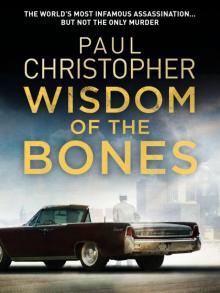 Wisdom of the Bones
Wisdom of the Bones The House of Special Purpose
The House of Special Purpose The Second Assassin
The Second Assassin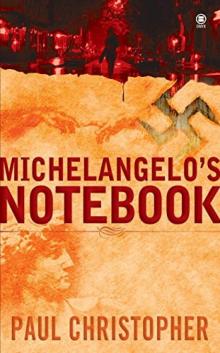 Michelangelo's Notebook
Michelangelo's Notebook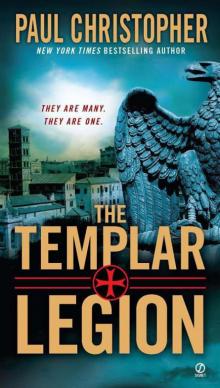 Templar Legion
Templar Legion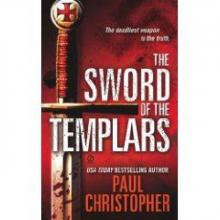 The Sword of the Templars t-1
The Sword of the Templars t-1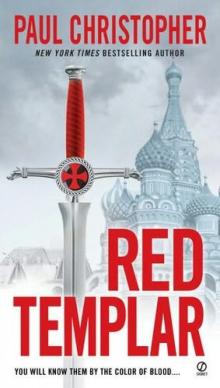 Red Templar
Red Templar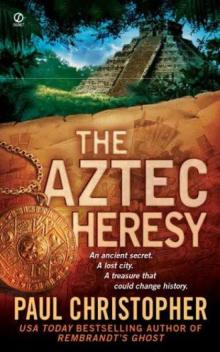 The Aztec Heresy
The Aztec Heresy The Templar Legion
The Templar Legion Rembrandt's Ghost
Rembrandt's Ghost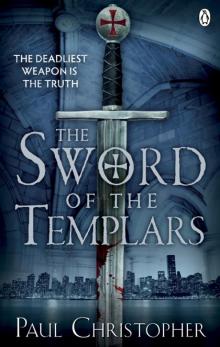 Sword of the Templars
Sword of the Templars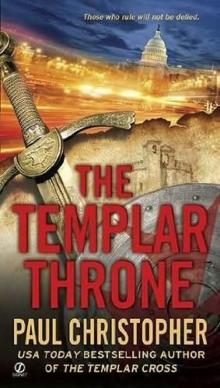 The Templar throne t-3
The Templar throne t-3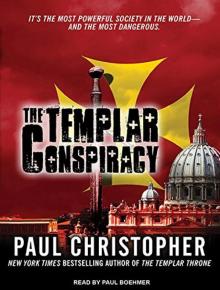 The Templar Conspiracy
The Templar Conspiracy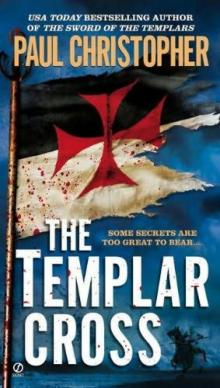 The Templar Cross t-2
The Templar Cross t-2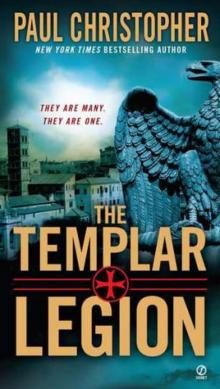 The Templar Legion t-5
The Templar Legion t-5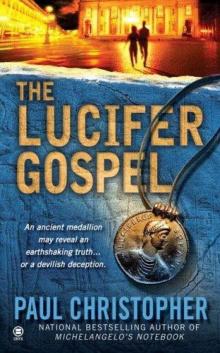 The Lucifer Gospel
The Lucifer Gospel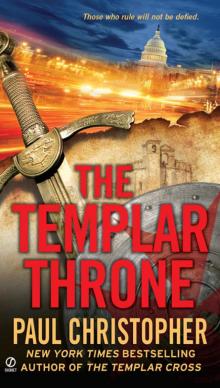 Templar Throne
Templar Throne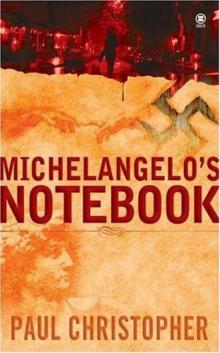 Michelangelo_s Notebook fr-1
Michelangelo_s Notebook fr-1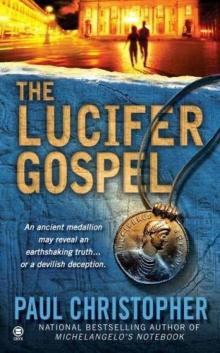 The Lucifer Gospel fr-2
The Lucifer Gospel fr-2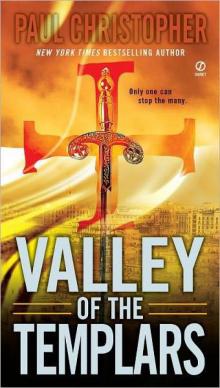 Valley of the Templars ts-7
Valley of the Templars ts-7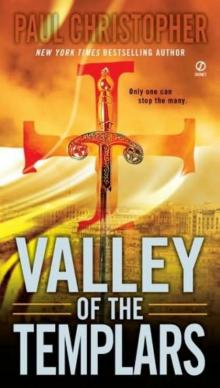 Valley of the Templars
Valley of the Templars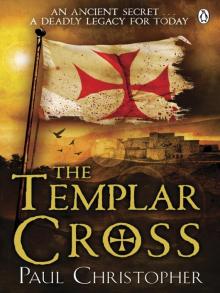 Templar Cross
Templar Cross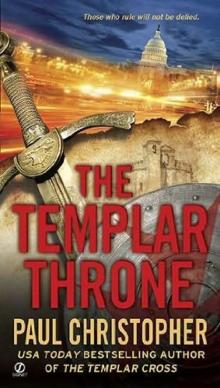 The Templar Throne
The Templar Throne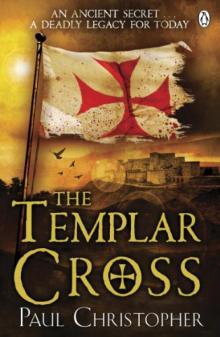 The Templar Cross
The Templar Cross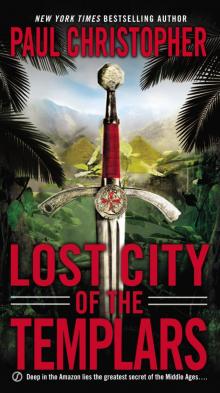 Lost City of the Templars
Lost City of the Templars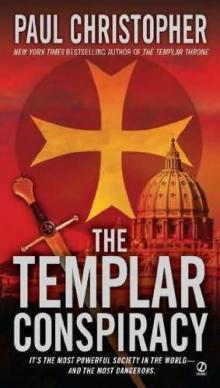 The Templar conspiracy t-4
The Templar conspiracy t-4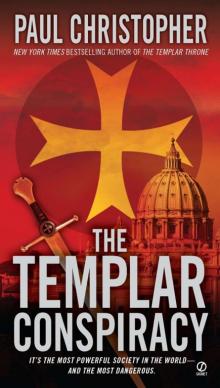 Templar Conspiracy
Templar Conspiracy